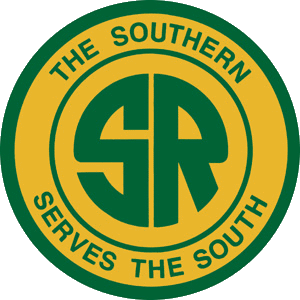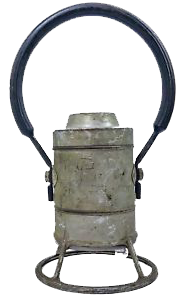 |
Great Smoky Mountains Rolling Stock |

Bryson City, NC / Mar 2018 / RWH















RWH
Coaches
Two coaches on the roster — Nos. 25 and 26 — are former Southern Railway cars built for the Pullman Company in 1923. They come from a series of Pullman sleepers that were later converted by Southern to standard passenger coaches. Both cars ride on 6-wheel heavyweight trucks and carry regional names.

Great Smoky Mountains #25 'Piedmont'
Bryson City, NC / Mar 2018 / RWH

Bryson City, NC / Dec 2020 / RWH

Great Smoky Mountains #26 'Southland'
Bryson City, NC / Mar 2018 / RWH

Bryson City, NC / Mar 2018 / RWH

Bryson City, NC / Mar 2018 / RWH

RWH

Bryson City, NC / Dec 2020 / RWH

Bryson City, NC / Dec 2020 / RWH
At least two coaches on the roster — Nos. 320 and 322 — were built in 1921 as Pullman parlor cars, but were later converted to a passenger coaches. Previous owners of the series included Nashville, Chattanooga & St Louis; Louisville & Nashville; the Clinchfield; and the Seaboard System. The cars ride on 6-wheel trucks, bear their Seaboard numbers, and carry the names of towns along the Southern's original Murphy Branch.

Great Smoky Mountains #320 'Sylva'
Bryson City, NC / Dec 2020 / RWH

Great Smoky Mountains #322 'Bryson City'
Bryson City, NC / Mar 2018 / RWH

Bryson City, NC / Mar 2018 / RWH

Bryson City, NC / Mar 2018 / RWH

Bryson City, NC / Dec 2020 / RWH

Great Smoky Mountains #324 'Pee Wee'
Bryson City, NC / Mar 2018 / RWH


RWH
Great Smoky Mountains #324 was built in 1935 as a Pullman Company coach, later modernized to a streamlined look. It rides on 6-wheel trucks and is named for "Pee Wee" Watson, dean of the Great Smoky Mountains conductors.

Bryson City, NC / Dec 2020 / RWH
Two coaches on the roster — Nos. 522 and 523 — were built in 1935 by Canadian Car & Foundry Company. They are standard heavyweight coaches, riding on 6-wheel trucks, bearing the names "Jackson" and "Cherokee".

Great Smoky Mountains #522 'Jackson'
Bryson City, NC / Mar 2018 / RWH

Bryson City, NC / Mar 2018 / RWH

RWH

Bryson City, NC / Mar 2018 / RWH

Bryson City, NC / Dec 2020 / RWH

Great Smoky Mountains #523 'Cherokee'
Bryson City, NC / Dec 2020 / RWH

Bryson City, NC / Dec 2020 / RWH

Bryson City, NC / Mar 2018 / RWH

RWH

Bryson City, NC / Mar 2018 / RWH

Great Smoky Mountain #841 'Royal Palm'
Bryson City, NC / Mar 2018 / RWH

Bryson City, NC / Mar 2018 / RWH

RWH
Great Smoky Mountain #841 is a 1958 Pullman Company coach formerly used by the Southern Railway, later owned by Norfolk Southern. The car rides on 4-wheel trucks and bears the name "Royal Palm".

Bryson City, NC / Dec 2020 / RWH

Great Smoky Mountains #1103 'Crescent'
Bryson City, NC / Dec 2020 / RWH

RWH
Great Smoky Mountains #1103 is a former Texas & Pacific Railroad heavyweight passenger coach. The car rides on 6-wheel trucks, bears its original T&P car number, and carries the name "Crescent".

Great Smoky Mountains #6514 'Dillsboro'
Bryson City, NC / Mar 2018 / RWH

Bryson City, NC / Mar 2018 / RWH

Bryson City, NC / Mar 2018 / RWH

RWH
Great Smoky Mountains #6514 is a former Chicago & North Western coach-lounge car, built in 1952 for the Pullman Company and later converted to a standard coach. The car rides on 4-wheel trucks, bears its original C&NW number, and carries the name "Dillsboro".

Bryson City, NC / Mar 2018 / RWH

Bryson City, NC / Dec 2020 / RWH
 Catamounts Car
Catamounts Car
Great Smoky Mountains #994012 is a first-class passenger coach rebuilt from a former Penn Central Railroad coach, later operated by CSX Transportation. The car rides on 4-wheel trucks and is named in honor of the mascot for Western Carolina University athletics.

Great Smoky Mountains #994012 'Catamounts'
Bryson City, NC / Dec 2020 / RWH

Dec 2020 / RWH

Dec 2020 / RWH

Dec 2020 / RWH
 Article
Article
WCU Athletics, Great Smoky Mountains Railroad Unveil “The Catamount”
May 2020
CULLOWHEE, N.C. – Western Carolina athletics and corporate partner Great Smoky Mountains Railroad (GSMR) have teamed up to allow WCU alumni, fans, and friends to show their Catamount Pride while riding the rails with the recent unveiling of "The Catamount", a newly repainted and renovated railcar.
Catamount alumni and fans can see the car and take photos with it while practicing proper social distancing guidelines from Thursday, May 14 through Sunday, May 17 in Dillsboro, located on the main track in front of Innovation Brewing. Visitors are encouraged to share their photos using the hashtag #CatamountCountry and #GSMR on all social media platforms.
The railcar, which was formerly named "The Michigan", was built in 1952 as a parlor/business car and operated on the Penn Central line and then acquired by CSX in Jacksonville, Fla. in 1999. GSMR purchased the car in late 2018 where it arrived and was quickly remodeled into a First Class Car just before the start of its POLAR EXPRESS Train Ride Season. The newly renamed and restyled Catamount Car will be included as a first-class seating offering on the railroad's Nantahala Gorge and Tuckaseegee River excursions as well as special event trains.

Bryson City, NC / Dec 2020 / RWH

Bryson City, NC / Dec 2020 / RWH
Lounge Cars

Great Smoky Mountains #536 'MacNeill'
Bryson City, NC / Mar 2018 / RWH

Bryson City, NC / Mar 2018 / RWH

Dec 2020 / ETH
Great Smoky Mountains #536 is a former Norfolk & Western Railway coach, built in 1952 for the Pullman Company and later converted to a coach-lounge car. The car previously belonged to the Roanoke Chapter of the National Railway Historical Society. It rides on 4-wheel trucks, bears its original N&W number, and carries the name "MacNeill".

RWH

Bryson City, NC / Dec 2020 / RWH

Great Smoky Mountain #3331 'Carolina Shine'
Bryson City, NC / Dec 2020 / RWH
Great Smoky Mountain #3331 is a former Atlantic Coast Line Railroad observation car, built in 1940 by the Budd Company as a tavern-lounge. After ACL service, the car went to the Seaboard Coast Line, then to Amtrak, and finally to the American Zephyr operation. It rides on 4-wheel trucks, bears its former Amtrak number, and carries the name "Carolina Shine".

Mar 2018 / RWH

Bryson City, NC / Mar 2018 / RWH
Diners

Great Smoky Mountains #8015 'Silver Meteor'
Bryson City, NC / Dec 2020 / RWH

RWH
Great Smoky Mountains #8015 is a former Seaboard Air Line dining car built in 1940 by the Budd Company. It later served Seaboard Coast Line, then Amtrak, then the American Zephyr operation, much like #3331 above. The car rides on 4-wheel trucks and carries the name "Silver Meteor" in honor of its Seaboard roots.

Dec 2020 / ETH

Dec 2020 / ETH

Great Smoky Mountains #8507 'Silver Star'
diner / Bryson City, NC / Dec 2020 / RWH

Dec 2020 / RWH

Great Smoky Mountains #8806 'Harper'
Bryson City, NC / Mar 2018 / RWH

RWH
Great Smoky Mountains #8806 is a former Pennsylvania Railroad twin-unit diner table car built in 1949 by the Budd Company. It later served Penn Central and then Amtrak. It rides on 4-axle trucks, bears its former Amtrak number, carries the name "Harper", and is used as tavern lounge.

Bryson City, NC / Mar 2018 / RWH

Bryson City, NC / Dec 2020 / RWH

Great Smoky Mountains #8807 'Conductors Café'
Bryson City, NC / Mar 2018 / RWH
Similar in lineage to #8806 above, Great Smoky Mountains #8807 is also a former Pennsylvania Railroad car. It was built by the Budd Company in 1949 as a twin-unit diner kitchen and dormitory car. It later served Penn Central and then Amtrak. It rides on 4-wheel streamline trucks, has been converted to a tourist merchandise car, and carries the name "Conductors Cafe".

Bryson City, NC / Dec 2020 / RWH
Open Air Coaches
Five open-air riding coaches on the roster — Nos. 30-34 — were converted by Great Smoky Mountain shops from former Kansas City Southern lightweight baggage express cars built for the Pullman Company in 1959. All ride on 4-axle lightweight trucks and are used in the warmer months of operation. They carry either place or person names.

Great Smoky Mountains #32 'Sarge Revis'
Bryson City, NC / Mar 2018 / RWH

RWH

Great Smoky Mountains #36 'Wildwater'
Bryson City, NC / Mar 2018 / RWH

RWH

Great Smoky Mountains #37 'Nantahala'
Bryson City, NC / Mar 2018 / RWH

RWH
Great Smoky Mountains #37 was converted to an open-air riding coach by Great Smoky Mountain shops from a former Erie-Lackawanna coach. It also saw service on the Maryland Midland tourist operation. It rides on 4-wheel lightweight trucks and carries the name "Nantahala".
Power Cars
The Great Smoky Mountains roster includes two bay window cabooses converted by the railroad into generator power plants for supplying hotel power to the passenger cars. #2448 was converted from a former Wabash caboose built in 1961, and #6118 from a former Louisville & Nashville caboose built in 1970.

Great Smoky Mountains #2448
Bryson City, NC / Dec 2020 / RWH

Great Smoky Mountains #6118
Bryson City, NC / Mar 2018 / RWH

Bryson City, NC / Mar 2018 / RWH

Bryson City, NC / Mar 2018 / RWH
Cabooses

Great Smoky Mountains #637
steel caboose / Whittier, NC / Mar 1999 / JCH

Whittier, NC / Mar 1999 / JCH

Great Smoky Mountains #01490
International Car Co. caboose (1970) / Bryson City, NC / Mar 2018 / RWH

Bryson City, NC / Mar 2018 / RWH

Bryson City, NC / Mar 2018 / RWH

Bryson City, NC / Mar 2018 / RWH

Bryson City, NC / Mar 2018 / RWH

Bryson City, NC / Mar 2018 / RWH

Great Smoky Mountains #999447
ex ATSF caboose (1969) / Bryson City, NC / Dec 2020 / RWH

Dec 2020 / RWH

Bryson City, NC / Mar 2018 / RWH

Dec 2020 / RWH

Dec 2020 / RWH

Bryson City, NC / Mar 2018 / RWH

Bryson City, NC / Mar 2018 / RWH
Links / Sources
- Railroad Picture Archives GSM rolling stock roster
- Michael George and Frank Strack, Passage Through Time: The Official Guidebook (Great Smoky Mountains Railroad, 2000) 176































